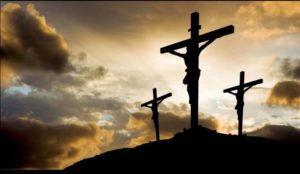
Fasting and TOB
February 26, 2021
 Fasting; a tradition I had presumed I had practiced faithfully growing up Catholic. I knew I was obliged to fast on Ash Wednesday and Good Friday, and I did what I thought I was supposed to do…. I ate one full meal, as well as two smaller portions when combined did not equal a complete meal. In our home, we were even required by my parents to observe this BEFORE the age of 14, as we considered ourselves to be GOOD Catholics. My husband and I have continued this practice with our children out of a sense of duty, really. Nevertheless, I will admit that I did not have much of an understanding of the beauty of fasting before I started studying the Theology of the Body. Like many Catholics, I had a mistakenly Manichaeistic view of the body, it was “divorced” from my spirituality. Furthermore, scriptures like “your body is a temple” were primarily, in my mind, understood to mean that we should abstain from premarital sexual relations. So, customs like fasting, I logically and shallowly reasoned, simply demonstrated that we eat too much and we should eat less during Lent. That’s it.
Fasting; a tradition I had presumed I had practiced faithfully growing up Catholic. I knew I was obliged to fast on Ash Wednesday and Good Friday, and I did what I thought I was supposed to do…. I ate one full meal, as well as two smaller portions when combined did not equal a complete meal. In our home, we were even required by my parents to observe this BEFORE the age of 14, as we considered ourselves to be GOOD Catholics. My husband and I have continued this practice with our children out of a sense of duty, really. Nevertheless, I will admit that I did not have much of an understanding of the beauty of fasting before I started studying the Theology of the Body. Like many Catholics, I had a mistakenly Manichaeistic view of the body, it was “divorced” from my spirituality. Furthermore, scriptures like “your body is a temple” were primarily, in my mind, understood to mean that we should abstain from premarital sexual relations. So, customs like fasting, I logically and shallowly reasoned, simply demonstrated that we eat too much and we should eat less during Lent. That’s it.
Once I began to digest Theology of the Body and became aware of its most succinct thesis, “the body, in fact, and only the body, is capable of making visible what is invisible, the spiritual and the divine. It has been created to transfer into the visible reality of the world the mystery hidden from eternity in God, and thus to be a sign of it.” (TOB 19:4). The clouds parted, and light illuminated on so much of the Church’s wisdom that I had never understood, including fasting. I began to see how our body shows us spiritual realities, and tells a story about us, IF we indeed have the eyes to see, and the ears to hear. I began to perceive how the physical hunger during
spiritual and the divine. It has been created to transfer into the visible reality of the world the mystery hidden from eternity in God, and thus to be a sign of it.” (TOB 19:4). The clouds parted, and light illuminated on so much of the Church’s wisdom that I had never understood, including fasting. I began to see how our body shows us spiritual realities, and tells a story about us, IF we indeed have the eyes to see, and the ears to hear. I began to perceive how the physical hunger during  fasting could point me to my spiritual hunger. In reading about suffering, I learned how to offer one’s suffering (hunger pangs, even) for a specific intention like the souls in purgatory. I realized that when we suffer, we are more in the image of Jesus because of His suffering. In fact, we are doing our part to participate with Him and unite our suffering to His on the cross. St. Paul writes, “Now I rejoice in my sufferings for your sake, and in my flesh I complete what is lacking in Christ’s afflictions for the sake of his body, that is, the church.” (Col 1:24) What is “lacking” is our participation. Nonetheless, I confess that I was still only doing the obligatory fasting required by the church.
fasting could point me to my spiritual hunger. In reading about suffering, I learned how to offer one’s suffering (hunger pangs, even) for a specific intention like the souls in purgatory. I realized that when we suffer, we are more in the image of Jesus because of His suffering. In fact, we are doing our part to participate with Him and unite our suffering to His on the cross. St. Paul writes, “Now I rejoice in my sufferings for your sake, and in my flesh I complete what is lacking in Christ’s afflictions for the sake of his body, that is, the church.” (Col 1:24) What is “lacking” is our participation. Nonetheless, I confess that I was still only doing the obligatory fasting required by the church.
Fast forward to last Spring, in the wake of the Coronavirus Quarantine, I had been amazed at the fruits my sister and her husband obtained from the intermittent fasting they had begun due to the book “Eat, Fast, Feast: Heal Your Body While Feeding Your Soul―A Christian Guide to Fasting” by Jay W. Richards. Having a plethora of “shelter-in-place” time, I decided to buy and read the book. Incidentally, I had been contemplating the relationship between the care of my body and my spiritual life. Were healthy eating, and exercise a moral obligation to take care of ourselves or were these just acts of vanity? I discovered within Jay W. Richard’s pages not only the church’s history of fasting, but the science behind its health benefits and was totally blown away. Most notably, one line in scripture, that I had heard many times before, but never meditated upon nor took to prayer, affected me the most. In Matthew 6:16  Jesus says “When you fast.” Not if you fast, but WHEN you fast. The practice of fasting can be seen throughout scripture, and as my eyes began to be opened, to REALLY see, I spotted it everywhere, and I finally found I had to expand my insufficient application to more than just Ash Wednesday and Good Friday.
Jesus says “When you fast.” Not if you fast, but WHEN you fast. The practice of fasting can be seen throughout scripture, and as my eyes began to be opened, to REALLY see, I spotted it everywhere, and I finally found I had to expand my insufficient application to more than just Ash Wednesday and Good Friday.
In The Catechism of the Catholic Church (CCC), fasting is one of the forms of Penance (CCC 1434, 1438), and is required in the precepts of the church (CCC 2043). “Scripturally, fasting, when accompanied by prayer is used before the commencement of any difficult task (Jude 20:26, Esther 4:16), to implore forgiveness for sin (1Kings 21:27), to obtain the cessation of a calamity (Jude 4:9-13), to gain the grace needed for the fulfilment of a mission (Acts 13:2), to prepare oneself to come face to face with God (Ex 34:28, Dan 9:3) As previously mentioned, Jesus Himself, assumes His followers are fasting (Mat 6:16-18) and gives advice for when we do it.

The saints have a lot to say about fasting too. Paul VI says, “In the Old Testament we can find gradually developing with ever-increasing richness, the religious sense of penance, as a personal religious act, which has as its end love for an abandonment in God.” Love for and abandonment in God, that’s it. Not some punishment because we eat too much, but so that we can FEEL our need. Humans are sensual people, we need the concrete or visible to help us understand the abstract or invisible reality. Remember the quote at the beginning? “The body, in fact, and only the body, is capable of making visible what is invisible,…” TOB 19:4. In fasting my body tells me of my need. It allows me to FEEL my need for God in a way that allows me to understand this need so much more deeply than without it. But that’s not all! Subsequently, I have the opportunity to take this need to the only one who can fill it, while at the same time, offering up my own minor suffering AND becoming more like Jesus at the same time. Really, when you think about it, fasting is a GIFT, because it is yet another way we can grow spiritually to fulfill God’s will for us. I leave you with four quotes to ponder, as these yielded much fruit for me during contemplative prayer time.

“Fasting cleanses the soul, raises the mind, subjects one’s flesh to the spirit, renders the heart contrite and humble, scatters the clouds of concupiscence, quenches the fires of lust, kindles the true light of chastity.”
— St. Augustine
“There are some who wish to be humble, but without being despised, who wish to be happy with their lot, but without being needy, who wish to be chaste, without mortifying the body, to be patient without suffering. They want both to acquire virtues and to avoid the sacrifices those virtues involve: they are like soldiers who flee the battlefield and try to win the war from the comfort of the city.” — St. Gregory the Great
“You are afraid of penance?…Of penance, which will help you to obtain Life everlasting? And yet, in order to preserve this poor present life, don’t you see how men will submit to all the cruel torture of a surgical operation?” — Jose Maria Escriva
“Avoiding penance would mean at the same time avoiding holiness and, perhaps, because of the consequences of this, rejecting salvation itself.” —Francis Fernandez — “In Conversation with God.”

Written by, Kathleen Cory,
Regional Curriculum Consultant (South),
Ruah Woods Press
Share